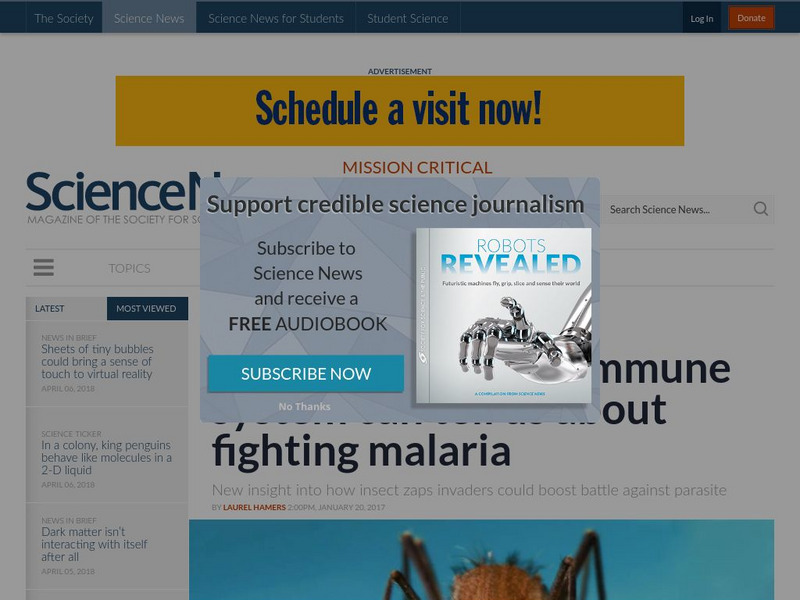OpenStax
Open Stax: Anatomy & Physiology: Anatomy of the Lymphatic and Immune Systems
Students learn and apply understanding of the structure and function of the components of the human lymphatic and immune systems.
CK-12 Foundation
Ck 12: Biology: Immune System Part I Study Guide
This study guide on the immune system covers key terminology and the different lines of defense the human body has to protect itself against pathogens. It is available for download with free registration.
Curated OER
Kids Health: Immune System
The different parts of the immune system and its cell types are explained. Also described are the three kinds of immunity humans have - adaptive, innate and passive - as well as the major types of disorders of the immune system.
Other
What a Mosquito's Immune System Can Tell Us About Fighting Malaria
Scientists are studying how mosquitos are able to fight off the parasites that humans seem to be unable to battle. Research is being done to help understand what slows or stops these parasites in the mosquito to protect them in an effort...
Khan Academy
Khan Academy: Innate Immunity
The human body requires a multilayered immune system to keep it running smoothly. The two main classes of the immune system are the innate immune system and the adaptive immune system, or "acquired immunity". This article discusses the...
OpenStax
Open Stax: Anatomy and Physiology:diseases Depressed/overactive Immune Response
This section is about how the immune system goes wrong. When it goes haywire, and becomes too weak or too strong, it leads to a state of disease. The factors that maintain immunological homeostasis are complex and incompletely understood.
Other
Story md.com: Cancer: Understanding What Is Cancer
An in-depth look at cancer and the human body. Learn about cancer on a cellular level, types of cancer, how genetics and lifestyle risk factors play a part in cancer growth, and much more.




